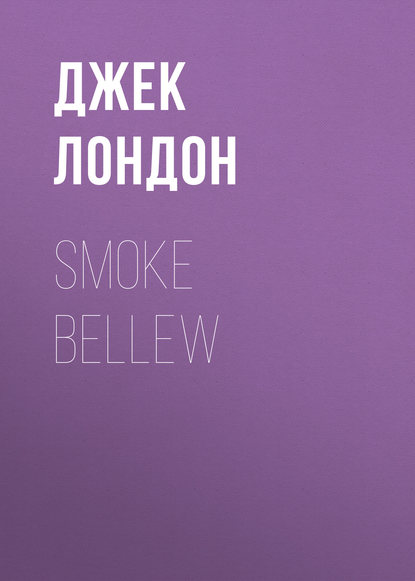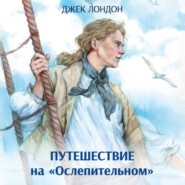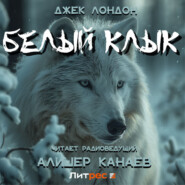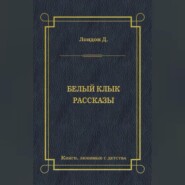По всем вопросам обращайтесь на: info@litportal.ru
(©) 2003-2024.
✖
Smoke Bellew
Настройки чтения
Размер шрифта
Высота строк
Поля
“Wait a bit, boys,” Smoke cried. “Maybe he doesn’t understand. Let me explain it to him. Look here, George. Don’t you see, nobody is charging anything. They’re giving everything to save two hundred Indians from starving to death.” He paused, to let it sink home.
“How much?” said Cultus George.
“Wait, you fellows! Now listen, George. We don’t want you to make any mistake. These starving people are your kind of people. They’re another tribe, but they’re Indians just the same. Now you’ve seen what the white men are doing – coughing up their dust, giving their dogs and sleds, falling over one another to hit the trail. Only the best men can go with the first sleds. Look at Fat Olsen there. He was ready to fight because they wouldn’t let him go. You ought to be mighty proud because all men think you are a number-one musher. It isn’t a case of how much, but how quick.”
“How much?” said Cultus George.
“Kill him!” “Bust his head!” “Tar and feathers!” were several of the cries in the wild medley that went up, the spirit of philanthropy and good fellowship changed to brute savagery on the instant.
In the storm-center Cultus George stood imperturbable, while Smoke thrust back the fiercest and shouted:
“Wait! Who’s running this?” The clamor died away. “Fetch a rope,” he added quietly.
Cultus George shrugged his shoulders, his face twisting tensely in a sullen and incredulous grin. He knew this white-man breed. He had toiled on trail with it and eaten its flour and bacon and beans too long not to know it. It was a law-abiding breed. He knew that thoroughly. It always punished the man who broke the law. But he had broken no law. He knew its law. He had lived up to it. He had neither murdered, stolen, nor lied. There was nothing in the white man’s law against charging a price and driving a bargain. They all charged a price and drove bargains. He was doing nothing more than that, and it was the thing they had taught him. Besides, if he wasn’t good enough to drink with them, then he was not good enough to be charitable with them, nor to join them in any other of their foolish diversions.
Neither Smoke nor any man there glimpsed what lay in Cultus George’s brain, behind his attitude and prompting his attitude. Though they did not know it, they were as beclouded as he in the matter of mutual understanding. To them, he was a selfish brute; to him, they were selfish brutes.
When the rope was brought, Long Bill Haskell, Fat Olsen, and the craps-player, with much awkwardness and angry haste, got the slip-noose around the Indian’s neck and rove the rope over a rafter. At the other end of the dangling thing a dozen men tailed on, ready to hoist away.
Nor had Cultus George resisted. He knew it for what it was – bluff. The whites were strong on bluff. Was not draw-poker their favorite game? Did they not buy and sell and make all bargains with bluff? Yes; he had seen a white man do business with a look on his face of four aces and in his hand a busted straight.
“Wait,” Smoke commanded. “Tie his hands. We don’t want him climbing.”
More bluff, Cultus George decided, and passively permitted his hands to be tied behind his back.
“Now it’s your last chance, George,” said Smoke. “Will you take out the team?”
“How much?” said Cultus George.
Astounded at himself that he should be able to do such a thing, and at the same time angered by the colossal selfishness of the Indian, Smoke gave the signal. Nor was Cultus George any less astounded when he felt the noose tighten with a jerk and swing him off the floor. His stolidity broke on the instant. On his face, in quick succession, appeared surprise, dismay, and pain.
Smoke watched anxiously. Having never been hanged himself, he felt a tyro at the business. The body struggled convulsively, the tied hands strove to burst the bonds, and from the throat came unpleasant noises of strangulation. Suddenly Smoke held up his hand.
“Slack away” he ordered.
Grumbling at the shortness of the punishment, the men on the rope lowered Cultus George to the floor. His eyes were bulging, and he was tottery on his feet, swaying from side to side and still making a fight with his hands. Smoke divined what was the matter, thrust violent fingers between the rope and the neck, and brought the noose slack with a jerk. With a great heave of the chest, Cultus George got his first breath.
“Will you take that team out?” Smoke demanded.
Cultus George did not answer. He was too busy breathing.
“Oh, we white men are hogs,” Smoke filled in the interval, resentful himself at the part he was compelled to play. “We’d sell our souls for gold, and all that; but once in a while we forget about it and turn loose and do something without a thought of how much there is in it. And when we do that, Cultus George, watch out. What we want to know now is: Are you going to take out that team?”
Cultus George debated with himself. He was no coward. Perhaps this was the extent of their bluff, and if he gave in now he was a fool. And while he debated, Smoke suffered from secret worry lest this stubborn aborigine would persist in being hanged.
“How much?” said Cultus George.
Smoke started to raise his hand for the signal.
“Me go,” Cultus George said very quickly, before the rope could tighten.
“An’ when that rescue expedition found me,” Shorty told it in the Annie Mine, “that ornery Cultus George was the first in, beatin’ Smoke’s sled by three hours, an’ don’t you forget it, Smoke comes in second at that. Just the same, it was about time, when I heard Cultus George a-yellin’ at his dogs from the top of the divide, for those blamed Siwashes had ate my moccasins, my mitts, the leather lacin’s, my knife-sheath, an’ some of ‘em was beginnin’ to look mighty hungry at me – me bein’ better nourished, you see.
“An’ Smoke? He was near dead. He hustled around a while, helpin’ to start a meal for them two hundred sufferin’ Siwashes; an’ then he fell asleep, settin’ on his haunches, thinkin’ he was feedin’ snow into a thawin’-pail. I fixed him my bed, an’ dang me if I didn’t have to help him into it, he was that give out. Sure I win the toothpicks. Didn’t them dogs just naturally need the six salmon Smoke fed ‘em at the noonin’?”
IX. THE MISTAKE OF CREATION
“Whoa!” Smoke yelled at the dogs, throwing his weight back on the gee-pole to bring the sled to a halt.
“What’s eatin’ you now?” Shorty complained. “They ain’t no water under that footing.”
“No; but look at that trail cutting out to the right,” Smoke answered. “I thought nobody was wintering in this section.”
The dogs, on the moment they stopped, dropped in the snow and began biting out the particles of ice from between their toes. This ice had been water five minutes before. The animals had broken through a skein of ice, snow-powdered, which had hidden the spring water that oozed out of the bank and pooled on top of the three-foot winter crust of Nordbeska River.
“First I heard of anybody up the Nordbeska,” Shorty said, staring at the all but obliterated track covered by two feet of snow, that left the bed of the river at right angles and entered the mouth of a small stream flowing from the left. “Mebbe they’re hunters and pulled their freight long ago.”
Smoke, scooping the light snow away with mittened hands, paused to consider, scooped again, and again paused. “No,” he decided. “There’s been travel both ways, but the last travel was up that creek. Whoever they are, they’re there now – certain. There’s been no travel for weeks. Now what’s been keeping them there all the time? That’s what I want to know.”
“And what I want to know is where we’re going to camp to-night,” Shorty said, staring disconsolately at the sky-line in the southwest, where the mid-afternoon twilight was darkening into night.
“Let’s follow the track up the creek,” was Smoke’s suggestion. “There’s plenty of dead timber. We can camp any time.”
“Sure we can camp any time, but we got to travel most of the time if we ain’t goin’ to starve, an’ we got to travel in the right direction.”
“We’re going to find something up that creek,” Smoke went on.
“But look at the grub! Look at them dogs!” Shorty cried. “Look at – oh, hell, all right. You will have your will.”
“It won’t make the trip a day longer,” Smoke urged. “Possibly no more than a mile longer.”
“Men has died for as little as a mile,” Shorty retorted, shaking his head with lugubrious resignation. “Come on for trouble. Get up, you poor sore-foots, you – get up! Haw! You Bright! Haw!”
The lead-dog obeyed, and the whole team strained weakly into the soft snow.
“Whoa!” Shorty yelled. “It’s pack trail.”
Smoke pulled his snow-shoes from under the sled-lashings, bound them to his moccasined feet, and went to the fore to press and pack the light surface for the dogs.
It was heavy work. Dogs and men had been for days on short rations, and few and limited were the reserves of energy they could call upon. Though they followed the creek bed, so pronounced was its fall that they toiled on a stiff and unrelenting up-grade. The high rocky walls quickly drew near together, so that their way led up the bottom of a narrow gorge. The long lingering twilight, blocked by the high mountains, was no more than semi-darkness.
“It’s a trap,” Shorty said. “The whole look of it is rotten. It’s a hole in the ground. It’s the stampin’-ground of trouble.”
Smoke made no reply, and for half an hour they toiled on in silence – a silence that was again broken by Shorty.
“She’s a-workin’,” he grumbled. “She’s sure a-workin’, an’ I’ll tell you if you’re minded to hear an’ listen.”
“Go on,” Smoke answered.

















